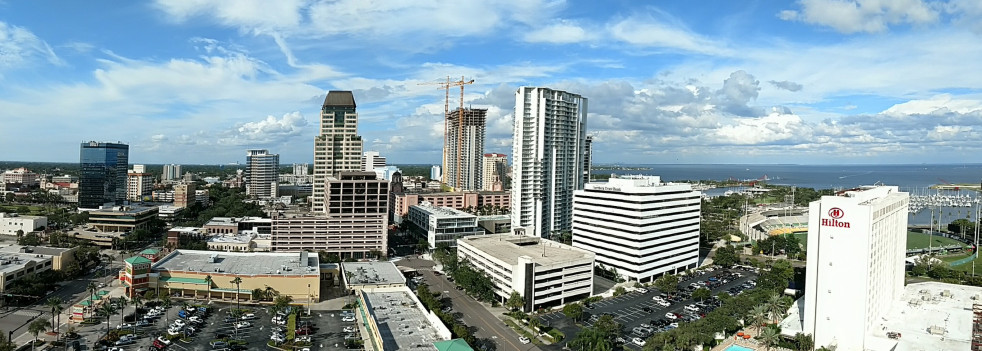
Part 1: Original Sin: What It Is And How It Is Propagated
Edward Leigh, Body of Divinity, Book 4, ch. 3. Corollaries from Original Sin.1. Resist the Inclination Toward Sin
We must make it part of our daily business to consider this natural corruption (that we may be daily humbled in the awareness of it) and to beseech God to help us fight against it, to keep it down, yea, to bestow his grace upon us to mortify the deeds of our flesh. “For if ye live after the flesh, ye shall die: but if ye through the Spirit do mortify the deeds of the body, ye shall live” (Romans 8:13).
We have three great enemies:
1. The World. That by profit, pleasure entices us.
2. The Devil. He makes use of the things of this world to draw us to sin; he can only solicit us to sin, but cannot compel the will.
3. Our own Flesh and corrupt nature is our worst enemy. It is an inward and constant enemy (James 1:15). The lusts of our own hearts are greater enemies than the World and Satan. 1. Because of their multiplicity and variety (Titus 3:3). 2. Their great activity, our thoughts are swifter than the sun. 3. Their pride and sovereignty.
1. We must therefore chip away at the old man every day, “put off concerning the former conversation the old man, which is corrupt according to the deceitful lusts; And be renewed in the spirit of your mind; And that ye put on the new man, which after God is created in righteousness and true holiness” (Eph. 4:22-24), and use the ordinances for this purpose:
1. Prayer.
Pray in faith, out of a sense of our own misery, and a confidence that God is able and willing to help us.2. The Word.
That is the Scepter by which Christ rules, the sword of the Spirit. “Sanctify them through thy truth: thy word is truth” (John 17:17). There is a purging virtue in the promises, “Having therefore these promises, dearly beloved, let us cleanse ourselves from all filthiness of the flesh and spirit, perfecting holiness in the fear of God” (2 Cor. 7:1).3. The Sacraments.
1. Baptism. It is not only for what is past, we must make constant use of that to crucify sin. “Know ye not, that so many of us as were baptized into Jesus Christ were baptized into his death?” (Rom. 6:3). 2. The Lords Supper. There Christ’s death for our sins is lively represented, and it is a strengthening ordinance.
2. We must pay attention to the outward senses. Job made a covenant with his eyes, “I made a covenant with mine eyes; why then should I think upon a maid?” (Job 31:1). David saith, “Turn away mine eyes from beholding vanity” (Psalm 119:37).
3. Keep the heart with all diligence. “Keep thy heart with all diligence; for out of it are the issues of life” (Prov. 4:23). “O Jerusalem, wash thine heart from wickedness, that thou mayest be saved. How long shall thy vain thoughts lodge within thee?” (Jer. 4:14). “For out of the heart proceed evil thoughts, murders, adulteries, fornications, thefts, false witness, blasphemies” (Mat. 15:19).
Those that are regenerate should often think of their estate by nature, what they were before conversion, “such were some of you“ (1 Cor. 6:11), “we were dead in sins” (Eph. 2:5), “For we ourselves also were sometimes foolish, disobedient, deceived, serving divers lusts and pleasures, living in malice and envy, hateful, and hating one another” (Titus 3:3). The Apostle Paul presses Christians hard in all his Epistles to look backward, what they were by nature, and he himself often tells us what a great sinner he was before his conversion.
Reasons we must beseech God to help us fight against original sin:
2. Be Thankful for God’s Restraining Grace1. To prevent spiritual pride. “What hast thou which thou hast not received?” (1 Cor. 4:7). God hath therefore left the remainders of spiritual death in us, to keep down pride. It is one great branch of the Covenant of Grace. “Then shall ye remember your own evil ways, and your doings that were not good, and shall loathe yourselves in your own sight for your iniquities and for your abominations” (Ezekiel 36:31).
2. To exalt the doctrine of God’s free-grace. The godly know by experience the corruption of nature, and therefore reject that conceit of free-will.
3. That you may admire the love of Christ. “For the love of Christ constraineth us; because we thus judge, that if one died for all, then were all dead: And that he died for all, that they which live should not henceforth live unto themselves, but unto him which died for them, and rose again” (2 Cor. 5:14-15). We need preventing grace as well as subsequent grace.
4. That we may not be altogether without hope for our friends that are dead in sin, since God hath quickened us who were so.
Secondly, Be thankful to God if he has bridled original sin in some good measure in ourselves and ours: Paul is often on this; and pity those that are in the state of nature. “Among whom also we all had our conversation in times past in the lusts of our flesh, fulfilling the desires of the flesh and of the mind; and were by nature the children of wrath, even as others.” (Eph. 2:3).
3. Repent from Sinful ActionsThirdly, If we have run into any loathsome crimes we should repent of them, and turn to God that we perish not in them.
4. Have No Confidence in the FleshFourthly, There is no reason for anyone to boast of his natural birth, though never so high, unless he partake of the new birth, “Among whom also we all had our conversation in times past in the lusts of our flesh, fulfilling the desires of the flesh and of the mind; and were by nature the children of wrath, even as others. But God, who is rich in mercy, for his great love wherewith he loved us, Even when we were dead in sins, hath quickened us together with Christ, (by grace ye are saved)” (Eph. 2:3-5). “Except a man be born again, he cannot see the kingdom of God…That which is born of the flesh is flesh; and that which is born of the Spirit is spirit” (John 3:3&6).
We all enter into the world equally naked, vile, and helpless. Our continuance in the world is equally uncertain, and when we die we shall carry nothing out of the world (1 Tim. 6:7). “For what hath man of all his labour, and of the vexation of his heart, wherein he hath laboured under the sun?” (Eccl. 2:22); “And this also is a sore evil, that in all points as he came, so shall he go: and what profit hath he that hath laboured for the wind?” (Eccl. 5:16); “And what will ye do in the day of visitation, and in the desolation which shall come from far? to whom will ye flee for help? and where will ye leave your glory?” (Isa. 10:3).
5. Consider Christ’s Estate of HumiliationFifthly, [The doctrine of original sin] informs us of the great condescension of Christ that he would assume our nature and purge it. It also reminds us of the difficulty and excellency of the work of regeneration, the plaster of sanctification is as large as the sore of original sin, it daily eats up the proud flesh.
Advertisements Share this:




